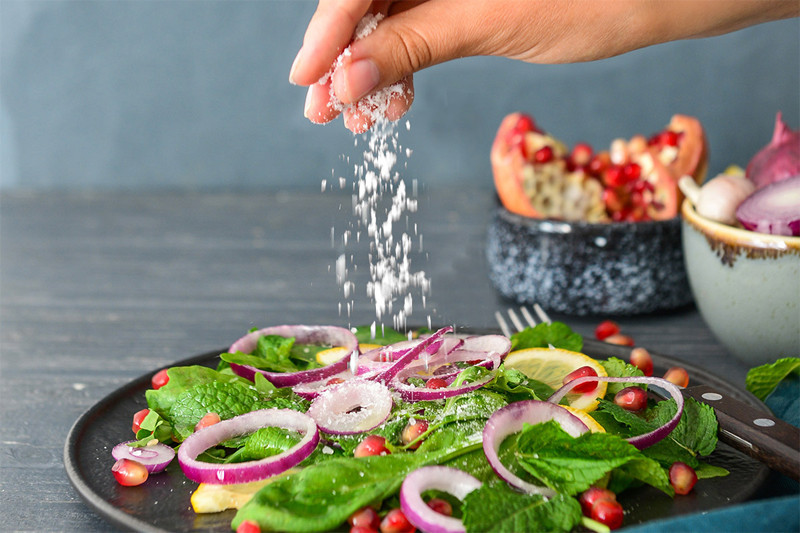Vietnamese food preparation habits can easily lead to cancer.
Vietnamese people are eating an average of 9.5g of salt per day, nearly double the world's recommendation.
Master, specialist doctor 2, Tran Thi Anh Tuong, Head of Nutrition Department, Ho Chi Minh City Oncology Hospital said that if there is a lack of salt, the human muscle and nervous system will not function. Therefore, salt is very necessary for the body but at a certain level.
According to the World Health Organization, a healthy adult should not eat more than 6g of salt per day, equivalent to one teaspoon of salt. However, Vietnamese people are eating an average of 9.5g of salt per day, nearly double the recommended level.
Doctor Tuong said that the consequences of the habit of eating salty food are many diseases such as high blood pressure, heart disease, sudden death, stroke and even cancer.
“Salty food is a risk factor for stomach and esophageal cancer. The risk of stomach cancer is 1.5 times higher in people who eat salty food. This diet is also related to colon, kidney and bladder cancer,” said Dr. Tuong.
 |
Salt is essential for the body, but eating too much can have negative consequences for your health. Illustration: SA |
Although there is no official explanation, some epidemiological studies in the world show that the number of cancer cases is higher in groups that consume more salt. According to Dr. Tuong, there are two hypotheses about eating salty food causing stomach cancer.
Firstly, eating salty foods will damage the lining of the digestive tract. HP bacteria are always present in the stomach. When the stomach lining is damaged, HP can easily penetrate deep inside and cause stomach cancer.
Second, eating salty foods will create an environment for HP bacteria to grow. When the number of HP is higher, the risk of stomach cancer will be higher.
Doctor Tuong analyzed that the appropriate amount of salt will change according to age and health condition. If children over 11 years old can eat the same amount of salt as healthy adults (maximum about 6g salt/day), children under 1 year old should only eat less than 1g salt/day because their kidneys are not developed enough to eliminate it. People who have had a stroke, people with blood pressure, heart disease should eat about 3g salt/day.
In addition, the habit of using fish sauce, dipping sauces, sauces, soy sauce, tomato sauce... in meals has added salt to the body. This habit is very difficult to change in adults. Therefore, doctors encourage families not to prepare dipping sauce on the daily meal tray to limit "dipping", thereby reducing salt consumption.
Housewives should also reduce salt when cooking, only about 75% of the recommended level to compensate for the amount of salt when dipping food.
Dr. Tuong said that changing habits is a process, a long time. Therefore, adults need to train children to eat bland food from the beginning, if they form a habit of eating rich food, it will be very difficult to change.


